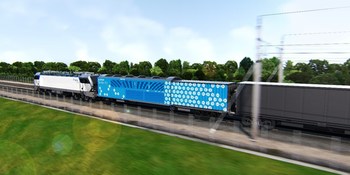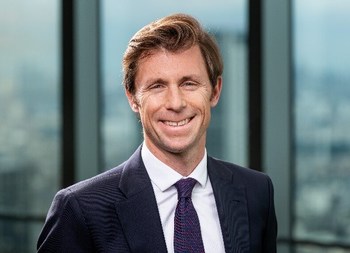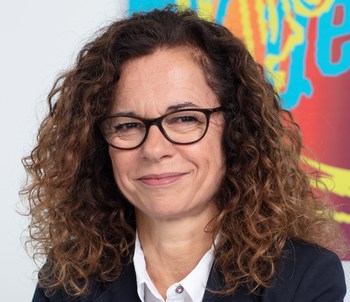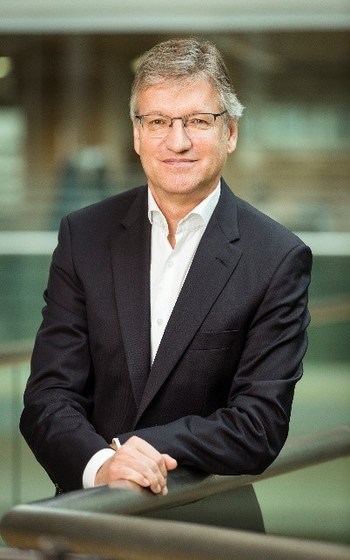- Nestlé Waters will be the first company in Europe to benefit from the hydrogen fuel cell solution developed by Alstom and ENGIE, for rail freight.
- The purpose is to operate the first hydrogen-powered freight train from the Vosges plant, thanks to a hydrogen generator wagon system developed by Alstom and supplied with renewable hydrogen by ENGIE, from 2025.
- Ultimately, this project should enable Nestlé Waters to reduce[1] emissions by 10’000 tons of CO2 equivalent per year.
- This new collaboration is in line with the actions Nestlé Waters has been carried out for several years to decarbonize its supply chain.
ISSY-LES-MOULINEAUX, France, Nov. 22, 2022 /PRNewswire/ — In line with its supply chain decarbonization roadmap, Nestlé Waters will be the first company in Europe to benefit from the hydrogen fuel cell solution for massified rail freight, including renewable hydrogen supply, developed by Alstom and ENGIE. It is estimated that this project will reduce[2] emissions by 10’000 tons of CO2 equivalent per year, in the long term, i.e. the reduction of 90% of its current emissions. This is the equivalent to the annual emissions of more than 30’000 round trips from Paris <> Nice by car[3].
As a significant innovation, the new hydrogen solution will be developed from a high-powered fuel cell system that can power electric locomotives in non-electrified areas. This solution will be able to transport goods over long distances, on a national and European scale.
From 2025, this freight train powered by electricity from the rail network and from hydrogen in non-electrified sectors will aim to progressively ensure the transport of VITTEL® natural mineral water between the factory located in the Vosges and its various distribution centers in France (i.e Vittel/Arles 600 kms and Vittel/Montreuil-Bellay 760 kms). The dual-mode solution will be composed by a generator wagon incorporating a high-power fuel cell system powered by renewable hydrogen and a line-electric locomotive, all connected by an electrical power cable. The generating wagon will be able to supply the locomotive with electricity in the without the need for any catenary.
“At Nestlé Waters, we favour rail freight whenever possible. We are constantly looking for efficient solutions to reduce the carbon impact of our supply chain,” said Sophie Dubois, Chief Executive Officer of Nestlé Waters in France.
“We are very proud of this project as it represents a significant investment by our railway team to find innovative solutions to answer to climate and environmental challenge. This collaboration with Alstom and ENGIE will accelerate the development of a decarbonized/carbon-free supply chain“, concluded Sophie Dubois.
An innovative decarbonization system developed by Alstom and ENGIE
Nestlé Waters will be the first company to benefit from the hydrogen fuel cell solution for rail freight, including renewable hydrogen supply, developed by Alstom and ENGIE under a partnership announced in April 2022.
This solution aims to replace the diesel-powered locomotives, currently used on most lines in France and most European countries.
The high-power hydrogen fuel cell system developed by Alstom will power electric locomotives in non-electrified areas and offer a 100% electric solution for rail freight, end-to-end, including to the first and last kilometers, which are rarely electrified.
This innovative solution will make it possible to carry out all freight journeys with the same electric locomotive, powered by the catenary on electrified main lines and by the hydrogen generator wagon in non-electrified areas.
In terms of performance, the solution will provide all the power of a catenary-based mainline electric locomotive and enough power with hydrogen energy to pull a freight train over non-electrified line segments.
ENGIE will supply the renewable hydrogen for this solution through the deployment of an innovative supply chain.
“Alstom has been a pioneer in hydrogen trains by developing the first hydrogen train in commercial operation worldwide.” said Marc Granger, Chief Strategy Officer of Alstom.
“Our ambition is to accelerate the adoption of hydrogen in the rail industry and to develop innovative solutions for the greening of mass mobility, including rail freight. Therefore, we are looking forward to the first circulation of a freight locomotive powered by renewable hydrogen in 2025. To go further, this solution, which is more environmentally friendly and generates less noise than diesel, will make it possible to develop the modal share of rail freight by offering an end-to-end electric solution, a real alternative to freight transport.”
“Following the announcement of our partnership with Alstom to supply hydrogen to this new European rail decarbonization solution, Nestlé Waters becomes the first prime contractors for our offer, and the first future user of our solution. This is a key step in the development of this project. Hydrogen plays an essential role in the transition of industrial companies towards reducing their emissions, a dynamic in which ENGIE is fully involved. »
Sébastien Arbola, Executive Vice President of ENGIE in charge of Thermal Generation, Hydrogen & Energy Supply activities.
Nestlé Waters puts rail as a strategic part of its carbon reduction roadmap
This project with Alstom and ENGIE is the latest for Nestlé Waters, which has long favored rail in its logistical approaches to minimize the environmental impact of transport, equivalent to a quarter of its carbon footprint[4]. While for French industry, the share of rail freight represents on average [5]8% to 10% of the volumes transported, for Nestlé Waters in France, it represents nearly 45% of the volumes of the Vosges factory.
In 2018, Nestlé Waters joined the FRET21 approach and signed an agreement with the French Agency for Ecological Transition (Agence de la Transition Ecologique – ADEME) to take action to reduce the carbon footprint of its product transport flows in France. In 2020, the group set a further target of reducing its transport-related CO2 emissions in France by 13% by the end of 2022. This ambition is based on the following concrete actions:
- In 2018, the opening of a railway line between its PERRIER® plant and the port of Fos-sur-Mer, reducing the passage of 27,000 trucks per year.
- In 2019, the introduction of the EURODUAL hybrid locomotive, which has saved 1,920 tonnes of CO2 equivalent per year compared to a diesel locomotive.
- In 2021, the Glass Train project, which promotes the transport of VITTEL® and S.PELLEGRINO® returnable glass bottles by train, reduces the passage of 1,000 trucks per year.
The initiatives led by Nestlé Waters since 2020 have already made it possible to reduce almost 11% of the carbon emissions from transport, or about 5’900 tons of CO2 equivalent by the end of 2021.
All these actions contribute to the Nestlé Group’s ambition of zero net greenhouse gas emissions by 2050 at the global level.
About Nestlé Waters
Founded in 1992, Nestlé Waters, a subsidiary of the Nestlé Group, is a natural mineral water business. It is the national leader in the bottled water market in France with 8 brands such as VITTEL® HEPAR® and CONTREX®. Nestlé Waters is committed to healthy hydration, working with local stakeholders to protect water resources wherever it operates and reducing the environmental impact of its packaging on the environment.
About ENGIE
We are a global reference group in low-carbon energy and services. Together with our 101’500 employees, customers, partners and stakeholders, we are committed every day to accelerating the transition to a carbon-neutral world through more energy-efficient and environmentally friendly solutions. Guided by our raison d’être, we reconcile economic performance with positive impact on people and the planet based on our core businesses (gas, renewable energies, services) to offer competitive solutions to our customers.
Turnover in 2021: €57.9 billion. Listed in Paris and Brussels (ENGI), the Group is represented in the main financial (CAC 40, Euronext 100, FTSE Eurotop 100, MSCI Europe) and extra-financial (DJSI World, DJSI Europe, Euronext Vigeo Eiris – Eurozone 120/ Europe 120/ France 20, MSCI EMU ESG screened, MSCI EUROPE ESG Universal Select, Stoxx Europe 600 ESG, and Stoxx Global 1800 ESG).
About Alstom
Leading the way in energy transition, Alstom develops and markets mobility solutions that provide a sustainable foundation for the future of transport. Whether it is high-speed trains, metros, monorails, trams, integrated systems, customized services, infrastructure, signaling solutions or digital mobility, Alstom offers its various customers the most comprehensive portfolio in the industry. 150,000 vehicles in commercial service around the world attest to the Group’s recognized expertise in project management, innovation, design and technology. In 2021, Alstom is included in the Dow Jones Sustainability Indexes, World and Europe, for the 11th consecutive time.
Headquartered in France, Alstom is present in 70 countries and employs over 74,000 people worldwide. The Group generated sales of €15.5 billion in the year ended 31 March 2022.
12,500 employees in France have the know-how to serve French and international customers. Around 30,000 jobs are generated in France by its 4,500 French suppliers.
Log on to https://www.alstom.com/for more information.
Media Contact – [email protected]
[1] Compared to the current solution (diesel locomotive)
[2] Compared to the current solution (diesel locomotive)
[3] Que représente (réellement) une tonne d’équivalent CO2 ? – Carbo (hellocarbo.com)
[4] Life cycle analysis study, 2018-2021, Cabinet RDC
[5] Chiffres clés du transport – édition 2019 (developpement-durable.gouv.fr)
Photo – https://mma.prnewswire.com/media/1952990/hydrogen_fuel_cell_solution.jpg
Photo – https://mma.prnewswire.com/media/1952992/Sebastien_Arbola.jpg
Photo – https://mma.prnewswire.com/media/1952993/Sophie_Dubois.jpg
Photo – https://mma.prnewswire.com/media/1952994/Marc_Granger.jpg
Logo – https://mma.prnewswire.com/media/1952991/Nestle_Waters_Alstom_Engie_Logo.jpg

SOURCE Nestlé Waters



